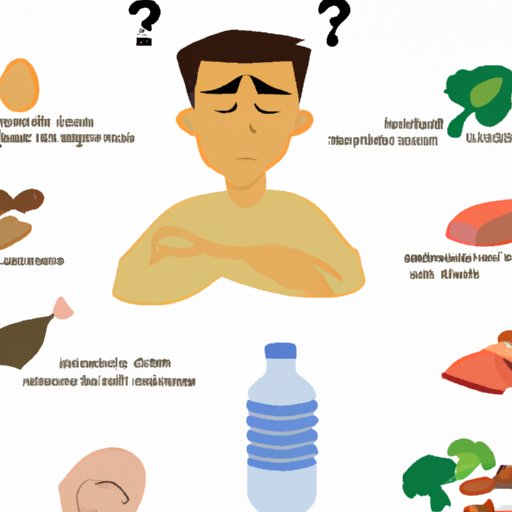Introduction – What Is a Protein Diet and How Does It Work?
A protein diet is one that involves consuming more protein than carbohydrates. While the exact ratio of protein to carbs can vary depending on a person’s individual needs and goals, the primary focus of any type of protein diet is to increase the amount of protein consumed each day.

Overview of the Protein Diet
The goal of a protein diet is to help people lose weight by reducing their overall calorie intake. This is achieved by replacing higher-calorie carbohydrates with lower-calorie proteins. Protein has been shown to be more filling than carbohydrates, so when people eat more protein and fewer carbohydrates, they generally feel fuller for longer.
Protein is also the building block of muscle, so a protein diet can help individuals build muscle mass while losing fat. This is important for those looking to get into better shape, as it means they can build muscle without gaining weight.
Benefits of a High-Protein Diet
A high-protein diet can have several positive health benefits. For example, it can help to reduce appetite, leading to less overeating. It can also help to reduce cravings and improve blood sugar control. Eating more protein can also help to boost metabolism, which can lead to increased fat burning. Finally, a high-protein diet can help to maintain muscle mass, which is important for overall health and fitness.

Sample Meal Plan for a Protein Diet
To give an idea of what a protein diet might look like, here’s a sample meal plan:
Breakfast
For breakfast, try a protein smoothie made with almond milk, Greek yogurt, berries, and protein powder. You can also add some nuts or seeds for extra protein and healthy fats.
Lunch
For lunch, you could have a grilled chicken breast with a side of steamed vegetables and a small portion of quinoa.
Dinner
For dinner, try a salmon fillet with roasted vegetables and a small portion of brown rice. You can also add a salad and some avocado for extra protein and healthy fats.
Potential Risks Associated With a High-Protein Diet
While a high-protein diet can be beneficial, there are some potential risks associated with it. For example, it’s important to make sure that you’re getting enough essential vitamins and minerals, as these can be lacking in a protein-heavy diet. Additionally, eating too much protein can put stress on the kidneys. Those with existing kidney problems should speak to a doctor before starting a high-protein diet.
Potential Health Benefits of a High-Protein Diet
In addition to helping with weight loss, a high-protein diet can offer several other health benefits. For example, it can help to improve metabolism, which can lead to increased fat burning. Additionally, it can help to preserve muscle mass, which is important for overall health and fitness. Finally, it can help to reduce hunger and cravings, making it easier to stick to a healthy diet.
Tips for Successfully Adopting a High-Protein Diet
If you’re thinking of adopting a high-protein diet, there are several steps you can take to ensure success. First, choose lean proteins such as fish, poultry, eggs, and legumes. Second, make sure to eat plenty of vegetables, as these provide essential vitamins and minerals. Third, drink plenty of water to stay hydrated. Finally, make sure to get enough sleep, as this can help to regulate hormones and boost metabolism.
Common Misconceptions About the Protein Diet
There are several common misconceptions about the protein diet. For example, some people believe that it is unhealthy, but this is not true. In fact, eating a balanced diet that includes plenty of protein can be beneficial for overall health. Others believe that it is difficult to follow, but with careful planning and preparation, it can be quite easy. Finally, some people think that it is expensive, but this is not necessarily true. There are many affordable sources of protein, such as eggs, legumes, and tofu.
Conclusion
A protein diet can be an effective way to lose weight and improve overall health. By choosing lean proteins, eating plenty of vegetables, drinking plenty of water, and getting enough sleep, you can set yourself up for success. Just remember to consult your doctor before making any major changes to your diet.
(Note: Is this article not meeting your expectations? Do you have knowledge or insights to share? Unlock new opportunities and expand your reach by joining our authors team. Click Registration to join us and share your expertise with our readers.)
